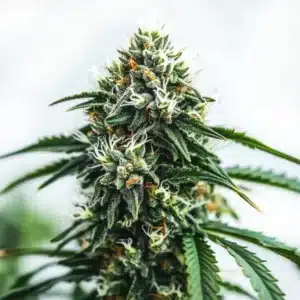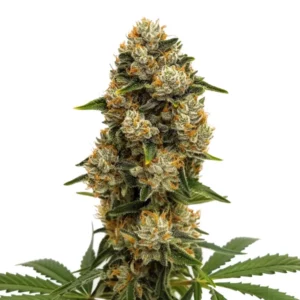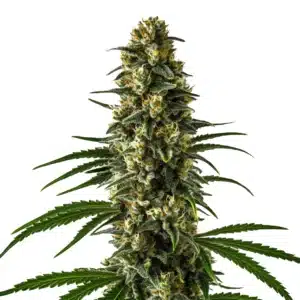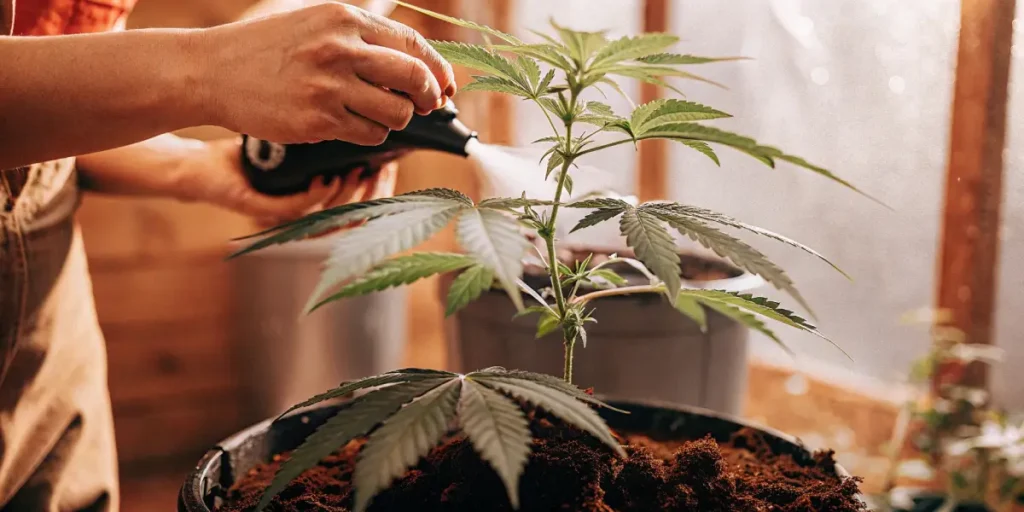
Best Organic Nutrients for Indoor Soil Grow: Boost Your Cannabis Yield Naturally
Growing cannabis indoors can be an incredibly rewarding venture. Choosing the best organic nutrients for indoor soil grow significantly influences this journey, enhancing plant growth and boosting overall health. Many growers opt for organic nutrients, which offer a plethora of benefits and nurture a sustainable growing environment without relying on harsh chemicals.
Think of nurturing your plants as creating a symbiotic relationship where both benefit. Using organic practices not only fosters this connection but also elevates the quality of your harvest in taste, aroma, and overall satisfaction for both you and your consumers.
Recommended Strains
Mimosa
|
|
THC | 24% - 30% (High) |
|
|
Type | Feminized |
|
|
Yield | High |
|
|
Phenotype | 30% Indica / 70% Sativa |
Mimosa XXL Auto
|
|
THC | 18% - 20% (Medium) |
|
|
Type | Autoflowering |
|
|
Yield | Medium |
|
|
Phenotype | 50% Indica / 50% Sativa |
Why Should You Choose Organic Nutrients?
Embracing organic nutrients for your cannabis plants can encourage natural growth patterns. Organic options work wonders in improving soil structure while simultaneously increasing the microbial population within the soil, a boon for plant development. There’s just something special about cultivating plants in a way that aligns with nature!
This organic approach not only enriches your soil but also enhances the overall quality of your harvest. Many growers notice an improvement in the flavor and aroma of their final products when using the best cannabis nutrients for soil in indoor grow setups. Organic methods create a safe, nurturing environment, an essential aspect for both cultivators and consumers, reducing the chances of chemical residues in the yield.
Exploring Different Types of Organic Nutrients
When it comes to sourcing organic nutrients, a variety of options cater to the specific needs of your indoor soil grow. Each nutrient type offers unique benefits that contribute to a robust plant ecosystem. Here are several popular organic nutrient sources:
- Compost: A treasure trove of nutrients! Compost enhances soil quality by providing a balanced array of organic matter, fostering vibrant plant life.
- Worm Castings: Produced naturally by worms, these little gems are teeming with beneficial microorganisms. They improve nutrient availability and improve plant health.
- Organic Fertilizers: Options like fish emulsion and seaweed extract give your plants concentrated supplies of essential nutrients they crave.
- Bone Meal: As a slow-release source of phosphorus, bone meal is fantastic for promoting root development and flowering.
- Blood Meal: High in nitrogen, blood meal serves as an excellent supplement for supporting robust vegetative growth.
- Bat Guano: Renowned for its rich nutrient profile, bat guano shines especially during the flowering phase.
In combination, these nutrients create a well-rounded nutrient profile, ensuring your plants have access to a variety of essential elements that foster healthy growth. Diversifying nutrient sources will also help in balancing the nutrient needs throughout the grow cycle.
Promos & Deals
Key Nutrients for Thriving Cannabis Plants
Cannabis plants rely on a mix of nutrients to flourish. Primary macronutrients nitrogen (N), phosphorus (P), and potassium (K) serve specific and essential functions.
- Nitrogen: This nutrient is vital for leaf and stem growth, making it crucial during the vegetative stage when plants are rapidly developing foliage.
- Phosphorus: Supports root development and is indispensable for flowering and fruiting stages.
- Potassium: This nutrient is essential for overall plant health, helping with water regulation and disease resistance, both critical for a robust harvest.
In addition to macronutrients, cannabis plants also require micronutrients like calcium, magnesium, and sulfur for various physiological functions. Ensuring a well-rounded nutrient intake not only supports the health of your plants but also maximizes their yield potential.
Remember, nutrient monitoring is paramount throughout the growth cycle. Over-application or under-application of any specific nutrient can lead to unwanted deficiencies or toxicities, both of which can hinder your plants’ growth trajectory.

Best Practices for Using Organic Nutrients
Utilizing organic nutrients often requires a different approach than synthetic alternatives. Here are some straightforward best practices for their effective application:
- Start with Healthy Soil: A nurturing foundation is critical. Ensure you have a well-structured soil mix rich in organic matter before adding nutrients.
- Follow Manufacturer Instructions: If you’re relying on commercial organic fertilizers, be sure to adhere to the label recommendations concerning application rates and timing.
- Introduce Nutrients Gradually: Slowly incorporate nutrients, closely observing your plants’ responses to avoid the dangers of over-fertilization.
- Feed During Key Growth Stages: Customizing nutrient applications to align with growth stages—higher nitrogen during vegetative growth and a focus on phosphorus and potassium during flowering—can lead to optimal development.
Additionally, consider the magic of organic compost teas. These nutrient-rich brews, made by steeping compost in water, introduce beneficial microbes and enhance nutrient availability when applied to your plants. This method adds a dynamic and nutritious layer to your growing strategy.
Monitoring the Health of Your Plants
Regularly observing your plants is essential for ensuring they’re receiving the right nutrients. Look for signs of nutrient deficiencies or toxicities, such as yellowing leaves, stunted growth, or wilting stems. Timely reactions can make a significant difference in preventing more severe problems down the road.
Don’t forget about the impact of watering on nutrient intake! Overwatering can leach nutrients from the soil, while underwatering can hinder nutrient absorption. Striking a balance is key for a thriving indoor garden.
Common Nutrient Problems and Solutions
Even with organic nutrients, challenges may arise during the growing process. Here are a few common nutrient-related issues you might encounter, along with ways to tackle them:
- Nitrogen Deficiency: If the leaves start turning yellow from the bottom up, it might indicate nitrogen deficiency. Address this by increasing your nitrogen source, such as blood meal or fish emulsion.
- Phosphorus Deficiency: Look for purpling leaves or stunted root growth. This could signal a lack of phosphorus. Remedy this with bone meal or bat guano.
- Potassium Deficiency: Brown spots on leaf edges usually suggest potassium deficiency. Applying a balanced organic fertilizer should restore potassium levels.
Remember, plants communicate through their appearance, and being attentive to their needs will lead to healthier, more vigorous growth. Regular soil testing can also provide insightful data regarding nutrient availability, further refining your approach.
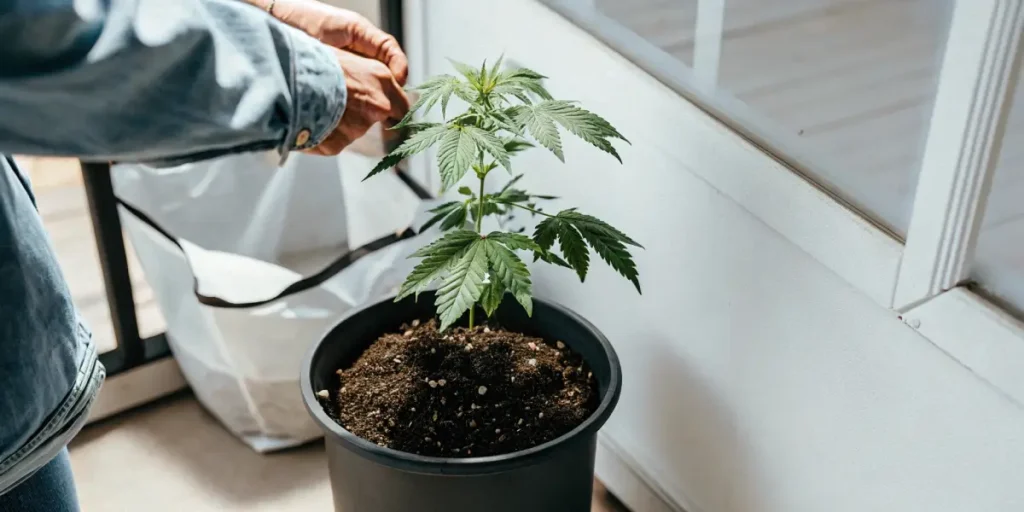
Organic Nutrient Products You Should Consider
When venturing into the world of organic nutrients, a plethora of reputable products is available for indoor growers. Brands like FoxFarm, Biobizz, and General Organics offer various options tailored to your unique needs. Here are some standout products:
- FoxFarm Happy Frog: This well-balanced mix contains organic nutrients and beneficial microbes, ideal for both seedlings and mature plants. It’s like a cozy home for your plants!
- Biobizz BioBizz Line: This comprehensive range provides various nutrients that support your plants at every growth stage, from sprouting seeds to harvest times.
- General Organics GO Box: This all-in-one nutrient kit contains everything you need for successful organic growing, taking the guesswork out of nutrient management.
These products come with clear instructions, making the application process straightforward for beginners and experienced growers alike. Always choose products that match your growing style and align with the specific needs of your plants to achieve the best results.
FAQs
What are the benefits of using organic nutrients for indoor cannabis growing?
Organic nutrients contribute to improved soil health, promote robust plant growth, enhance flavor and aroma, and minimize the risk of chemical residues—offering a more wholesome product for consumers.
How frequently should I feed my plants organic nutrients?
Typically, you should feed your plants every 2-4 weeks during the growth cycle. Be prepared to adjust this schedule based on the growth stage and your plants’ health indicators.
Is it possible to create my own organic nutrients at home?
Absolutely! You can craft your own organic nutrients using materials like compost, worm castings, and organic kitchen waste. Compost teas are particularly effective for providing an extra nutrient boost to your plants.
How can I identify if my plant suffers from a nutrient deficiency?
Observe your plants closely for symptoms like yellowing leaves, browning edges, and slowed growth. Each nutrient deficiency displays distinct characteristics, so familiarize yourself with what to look for!
Are organic nutrients pricier than synthetic options?
While organic products might sometimes carry a higher price tag, many growers find that the benefits ranging from better plant health to superior quality of the final product warrant the investment.




